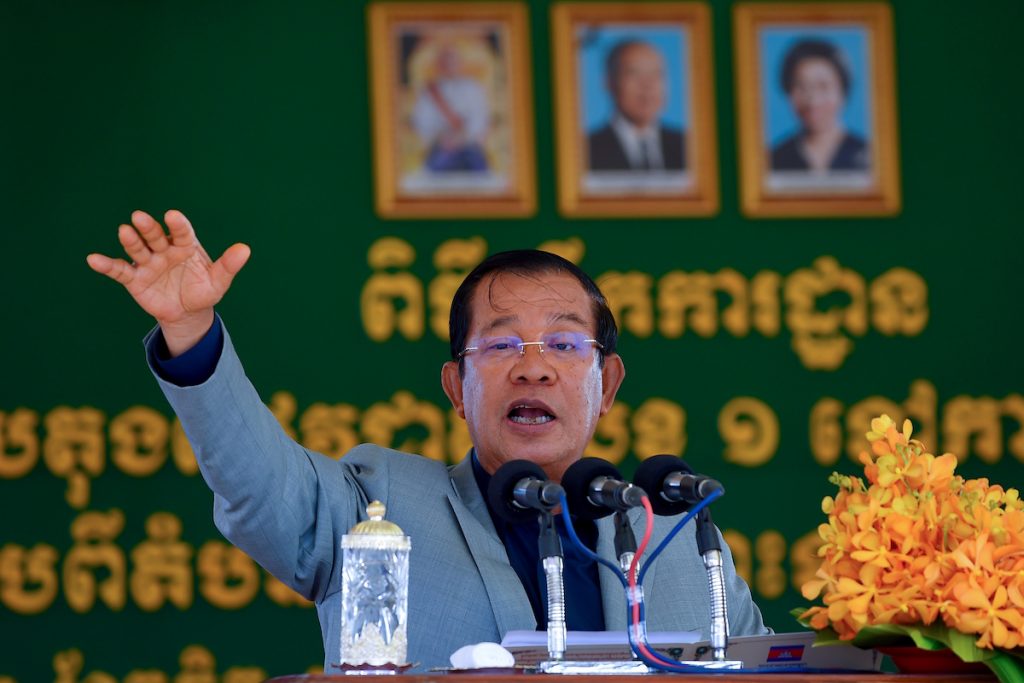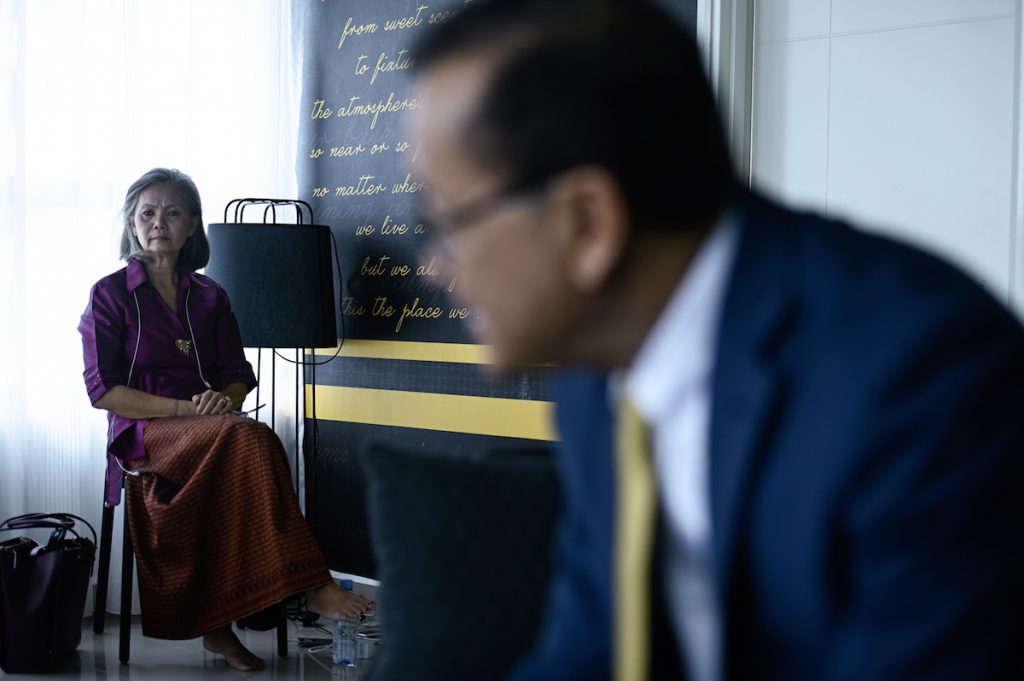It took Theary Seng a long time to learn why she was accused of committing conspiracy; a mystery resolved when the Cambodian-American human rights activist and lawyer finally saw legal documents that held the answer.
Seng participated in the planned return of opposition leader Sam Rainsy to Cambodia, the court documents said, a plan that eventually failed.
“It’s absurd,” she said about the accusations. “The strategy by this regime is to completely eradicate all remaining dissenting voices, thus they come after me now. Because I’m one of the very few who continue to speak out.”
Seng is one of over 100 people recently charged by a Cambodian court, accused of incitement and conspiracy to topple the government. According to the court those accused participated in Sam Rainsy’s plan to return to Cambodia in November 2019, in order to restore democracy. The scheme failed after the government installed a travel ban that stopped Rainsy and other opposition members in exile returning to the country.
Among the accused are opposition supporters from all over Cambodia, but also Rainsy himself, plus opposition leader Mu Sochua, the Australian-Cambodian politician Hong Lim and several other opposition members of the Cambodian National Rescue Party (CNRP). On Jan. 14, 46 of them are on trial in a case that human rights activists call politically motivated. Others are expected to be on trial in March.
Seng told LiCAS.news that she was charged because she posted a video on Facebook in which she asked people to come out and support Rainsy upon his returning to Cambodia.
“They’re putting everyone together and they say that I’m part of a group that committed conspiracy,” she said. “So, the charges are general, which is really not legal. The charges have to be a lot more specific.”
As an activist and lawyer Seng has been, for a long time, a well-known critic of Cambodia’s leader Hun Sen. She said that she’s ready to sacrifice her freedom.
“I’m putting my chances of being arrested and thrown into jail at 50/50. I continue to prepare mentally and physically, making sure that my dog is well cared for and that someone takes care of my home,” Seng said.
“Because I refuse to back down. Hun Sen is not going to force me to leave my home again,” she said, referring to the time that she was a child and fled Cambodia because of the communist Khmer Rouge regime.

The case is widely seen as another chapter in Cambodia’s fierce crackdown on critics and opponents, which has intensified over the past four years. In November 2017 the country’s main opposition party CNRP was dissolved by the Supreme Court, while its leader Kem Sokha being accused of treason.
Outspoken NGO’s and independent media were also targeted, with the daily newspaper Cambodia Daily forced to shut down. A growing number of critics has been sent to prison or forced to live in exile.
Among those accused of conspiracy is Mu Sochua, a former minister of Women and Veterans’ Affairs and one of the leaders of the CNRP. She currently resides in the United States.
Yet she had hoped to return to Cambodia later this month, but the government has revoked her Cambodian passport and she’s unable to get a Cambodian visa for her American passport.
“Denying me my passport is like denying me my citizenship,” Sochua told LiCAS.news through a video call. “I want to come back. It’s my country, it’s my place of birth. It’s my right to go back, even though I know that I’m going to be arrested.”
If she wants, Sochua could decide to stay overseas and avoid Cambodia’s notoriously overcrowded prisons but she said she doesn’t want to be tried in absentia.
“Let me defend my innocence. What’s your proof that I’m guilty of incitement and treason? Me and my colleagues want to be present, that’s a fundamental right.”
The opposition leader said that she doesn’t want to go for her own sake. “It’s about justice. It’s not for me. It’s for my colleagues and the whole country. It’s about where this country is going,” she said. “There’s a culture of impunity. The people have to stand up. You have to leave your zone of comfort to be proud of your country.”

The Cambodian government has been widely criticized for its mass trial of critics.
In November, when over 100 people were summoned to come to the first hearing, Rhona Smith, the UN Special Rapporteur of human rights in Cambodia, said that the case appears to be politically motivated.
“This is not an isolated episode. Civic and democratic space in Cambodia has continued to shrink and there remains little evidence of political rapprochement and reconciliation,” Smith said in a statement.
Kim Sok, a political commentator who spent about 18 months in prison after defaming Hun Sen and who gained political asylum in Finland, said that he also believes the trial is politically motivated while add that it’s part of the Cambodian government’s attempt to silent critics. “The regime has tried by any means to muzzle the masses when the opposition gets on public display,” he said.
Asked if she sees any chance that the opposition supporters will get a fair trial, Sochua said there’s ‘no way’ that would happen. “First of all, you are arrested without an arrest warrant and then right-away you go in pre-trial detention for months. That’s already not a fair trial,” she said.
Theary Seng feels the same way. Even the best legal arguments may not save her, she said.
“This is political theatre. The decision will be based on political considerations, whether it will hurt or harm the regime to keep my case,” Seng said. “It will be decided by politicians, not by judges.”
As a long-term critic, the Cambodian-American lawyer is well aware of the risks of criticizing Cambodia’s government. “I sleep well, because I’m a Christian. I embrace the Christian view that death is only the passage to eternal life,” she said.
“And if they arrest me, I will be singing, and I will go with good humor. I will not be in tears of sadness and sorrow for me. If I shed tears, it will be emotions for other reasons, like about the current state of affairs.”
Additional reporting by Sineat Yon






